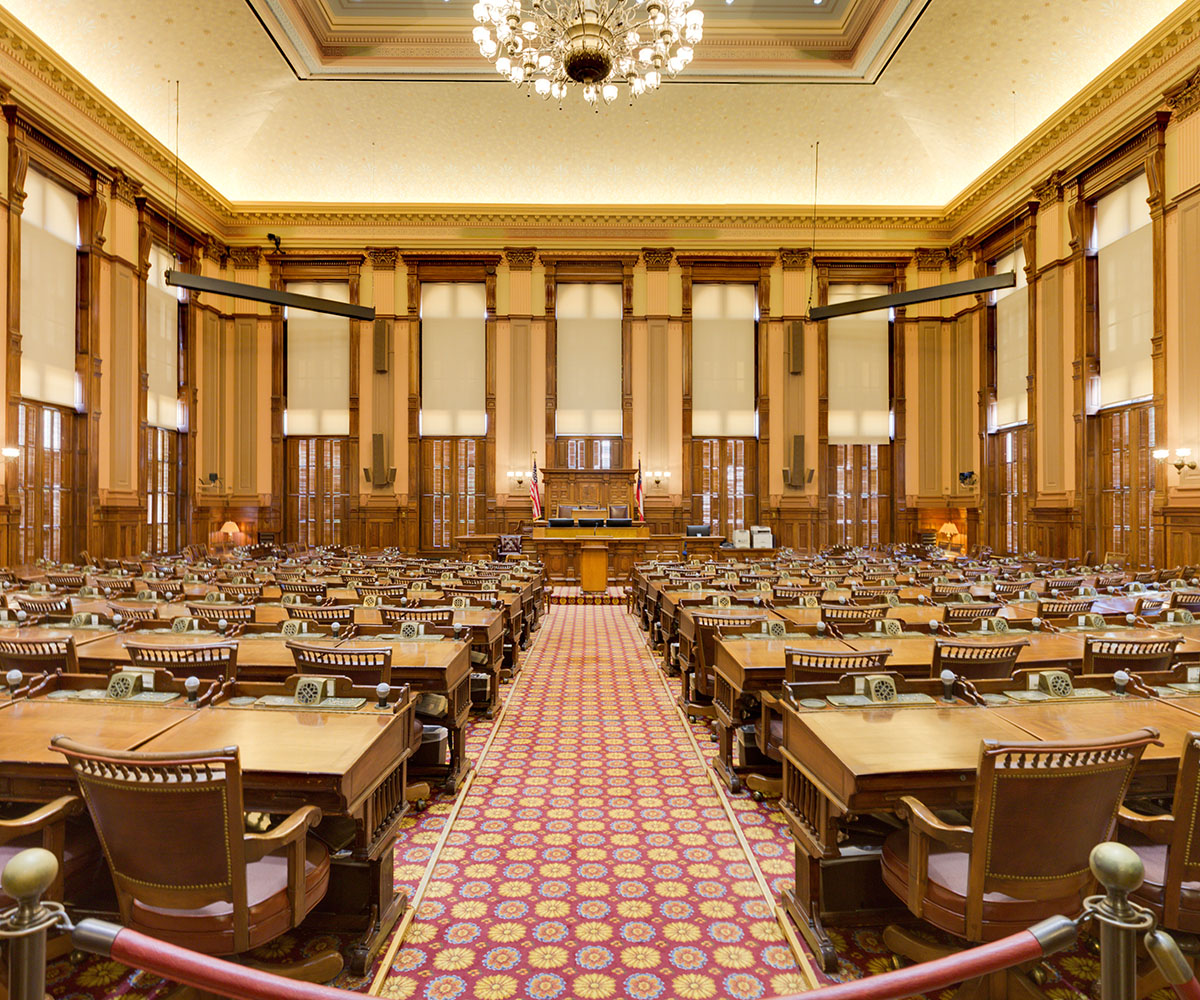The Georgia Legislature indefinitely suspended its 2020 legislative session in mid-March due to the COVID-19 outbreak. Lawmakers took the suspension as a preventive measure, with plans for the House and Senate to reconvene at a future date as outlined by the joint adjournment resolution adopted by both chambers.Here’s where the Georgia legislative session currently stands on some key issues:
Budget
One day before they suspended the legislative session, state lawmakers passed a $27.4 billion mid-year Amended Fiscal Year 2020 state budget, which was quickly signed into law by Governor Brian Kemp.Following a slowdown in state revenue after lawmakers cut Georgia’s top income tax rate, Gov. Kemp ordered mid-year reductions for the fiscal year 2020 budget. While the governor’s January proposed budget called for across-the-board spending cuts that would save $200 million, the House and Senate pushed back on many of the proposed cuts that would have impacted small-town Georgia, ultimately settling on $159 million in cuts. Exempt from the budget cuts are K-12 schools, colleges, the health program, Medicaid, and transportation.The mid-year budget adopted by the Legislature restores funding for public health grants and mental health services and included a $102.4 million adjustment to account for enrollment growth in Georgia’s public schools and over $2 million in criminal justice reform efforts.When Georgia lawmakers return, they will have the responsibility to adopt a fiscal year 2021 budget, using Gov. Kemp’s $28.1 billion proposed spending plan as their starting point. The governor’s proposed budget includes pay raíses for teachers and state employees, despite calling for $300 million in budget cuts.
Healthcare & COVID-19
The mid-year budget includes $100 million in funding for the governor’s emergency fund to address the impacts of the COVID-19 coronavirus. A special session order temporarily gives the governor and state health officials more leeway to relax certain regulations and institute others to combat the pandemic, and the mid-year spending plan also restores money for county health departments. Another provision allocates an additional $5 million for rural hospitals to cover some of the increased costs associated with COVID-19 treatment.Lawmakers will likely resolve several bills related to healthcare when they return to the Capitol. One bill would authorize new mothers to receive six months of Medicaid health insurance, while another would allocate more funding for train physicians and other health professionals at state medical schools.
Education
Education was spared from cuts in the governor’s spending plan – in fact, one of his priorities when the legislative session resumes will be to increase teacher pay. A bill to expand school choice opportunities for special education students to attend private schools is still alive. Issues such as standardized testing in public schools and school safety, including efforts to prevent gang violence, will likely be up for consideration when the session resumes.
Transportation & Infrastructure
The state’s mid-year budget adds $1.5 million for an expansion project at Middle Georgia Regional Airport in Macon. It also increases funding for state troopers and the Georgia Bureau of Investigation crime lab.
Gambling
Energized by the governor’s call to cut state spending, many insiders vigorously called for an expansion of gambling, asserting that expansion would boost state revenues and add thousands of jobs. The result of their advocacy was House Resolution 378, which would have asked voters whether the state constitution should be amended to allow for “all forms of” gambling, including horse racing, casino gambling, and legalized sports betting, and would have created the Georgia Gaming Commission to regulate the gaming industry. However, the resolution was defeated, and as a result, voters will not be asked to vote on the constitutional amendment in the 2020 election cycle.



